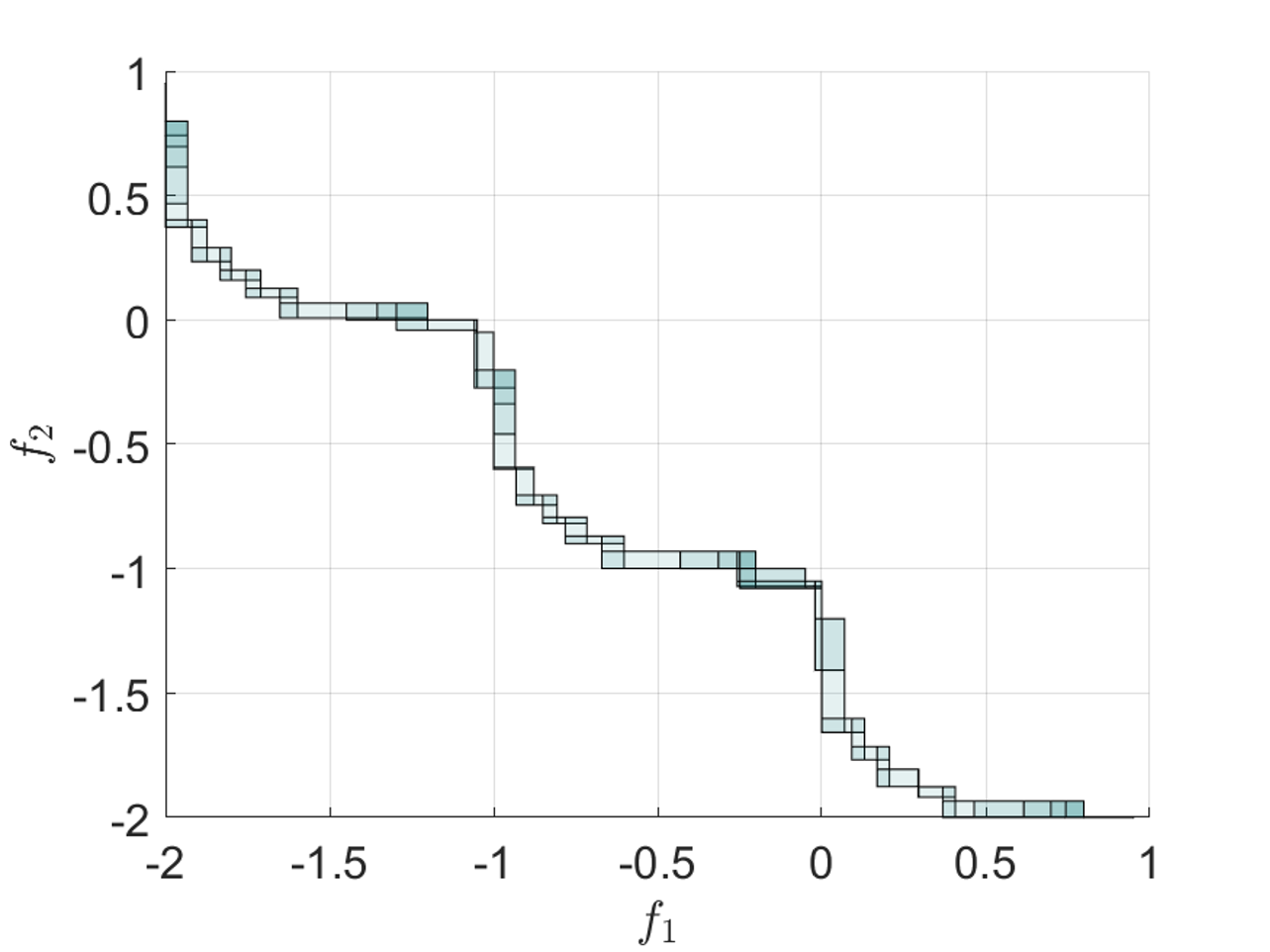Dr. Leo Warnow
Solving Multi-Objective Mixed-Integer Nonlinear Optimization Problems
Published on: December, 18th 2023, Link to pdf
Multi-objective mixed-integer optimization problems arise in a wide variety of practical applications. Examples include portfolio management, scheduling, and distribution planning. Usually, these optimization problems are characterized by a large number of variables and a relatively small number of objective functions.
This thesis presents three new deterministic approaches to approximate the nondominated set of such optimization problems. Two of them operate almost entirely in the criterion space. As a result, their computational performance is only weakly affected by the large number of variables usually encountered in practical optimization problems. While one of the approaches is a rather general algorithmic framework that is not always applicable in practice, the other one is able to solve almost all kinds of multi-objective mixed-integer convex optimization problems both theoretically and practically. For multi-objective mixed-integer nonconvex optimization problems, a third approach is presented. All three approaches are among the first to solve multi-objective mixed-integer optimization problems and provide guarantees on the quality of the approximation that they compute. Numerical tests and evaluations of all of them are also presented in this thesis.
All three approaches use the same concept, called enclosure, to approximate the non-dominated set. Its computation combines concepts from multi-objective integer optimization and multi-objective continuous optimization. In addition, the approach for multi-objective mixed-integer convex optimization problems explicitly explores the mixed-integer structure of the optimization problem and combines techniques from multi-objective continuous and single-objective mixed-integer optimization. It is the first of its kind to simultaneously work with and make use of a multi-objective mixed-integer linear relaxation and a multi-objective continuous convex decomposition of the overall multi-objective mixed-integer convex optimization problem.




